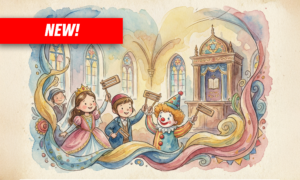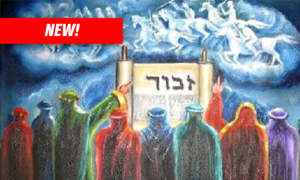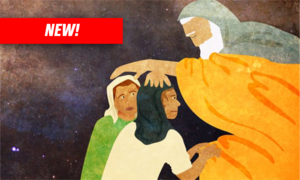Sicha, 10 Shevat 5723
Jacob Did Not Die
Rabbi Yochanan says that Jacob did not die, for “just as his progeny are alive, so is he.” (Source 1) In this address, the Rebbe explains the meaning of these words.
Material objects are not immortal; their existence is fleeting. When a Jew takes an object and uses it to connect with G-d, the eternal, he suffeses the object with that eternality. For example, when one gives their wealth to charity, they have raised it up from its temporal existence and used it for an eternal mitzvah.
Story: An Everlasting Investment (teacher’s manual only)
Money, the material, comes and goes, but a good deed lasts forever. Supporting millions of Jews’ livelihood is a spiritual act that is eternal.
Story: The Mentsch of Malden Mills (teacher’s manual only)
The story’s hero understood that a material investment is fleeting but a spiritual investment is forever.
Accordingly, life’s objective is to tranform fleeting, temporal moments into eternal ones.
For most people, the majority of their life is material and fleeting, and a small percentage is dedicated to holy, eternal matters. The life of a tzaddik, however, is wholly dedicated to the spiritual. Their life is spiritual, holy and eternal. The Alter Rebbe writes that the life of a tzaddik is spiritual life – faith, awe and love of G-d (Source 2).
The Rebbe explains that this can help us understand how Jacob was “eulogized and embalmed” yet still alive.
Every person is made up of a soul and body, and outwardly dressed in clothing. When a person changes their clothes, nothing drastic has occured – it is merely an external trapping for the body. For a tzaddik, the body itself is only a “garment” of the soul, via which it accomplishes its activities in this physical world.
When the time comes to switch this garment for a different one, nothing has really happened. If until now the tzaddik has worked in this world using their body, now they continue to do so with another medium: their students. Thus if their progeny are alive, they are too.
Story: The Baal Shem Tov’s Empty Pockets. Materialism was nothing to him.
The Bond With His “Progeny” is Greater than Before
The fact that the tzaddik is alive and continues to affect this world is very relevant to their students and followers. Their bond, both physical and spiritual, continues as before.
In a letter the Alter Rebbe wrote to the children and students of Rabbi Mendel of Vitebsk after the latter’s passing, he emphasized that the core of the tzaddik’s life is spiritual – faith, awe, and love of G-d – and therefore their students may continue to be affected by them – even in a physical sense – because that spirituality did not die; it continues in an even greater sense (Source 3).
The Rebbe notes that the term used for progeny also planting. This alludes to the expectations of the tzaddik’s students. One does not plant a seed expecting to get a seed in return; they anticipate growing a tree that will bear many fruits. When the tzaddik educates students and continues to influence them even after his passing, he expects that each one will in turn influence countless others. When the students live up to that, and ensure “progeny” they are “alive” and through that “he too is alive.”






